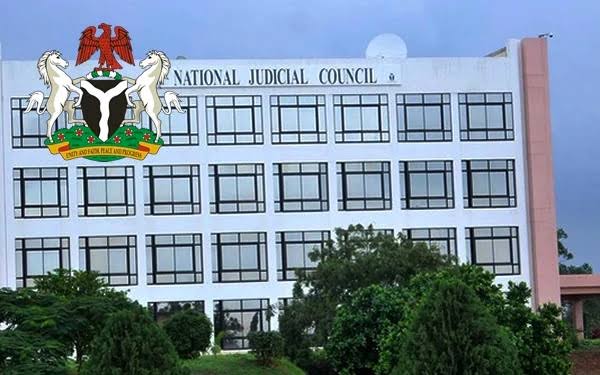The National Judicial Council (NJC) has dismissed ten judges from Nigeria’s judiciary for misconduct related to the falsification of their birth records. The action, announced following a recent meeting of the NJC, comes as part of the council’s ongoing efforts to uphold integrity and discipline within the judicial system.
Among those dismissed are five judges serving in the High Court and four judges from the Customary Court of Appeal. The NJC determined that these judges deliberately altered their official dates of birth, an act which the council classified as gross misconduct. The NJC also announced disciplinary action against another judge, making the total number of judges sanctioned in this latest round of disciplinary proceedings eleven.
The NJC stated that it reached its decision after thoroughly investigating petitions brought against the affected judges. The council found that the evidence clearly demonstrated that the judges had altered their personal data in an attempt to extend their tenure or misrepresent their age to remain in service beyond the legal retirement period.
These actions, according to the NJC, constitute serious ethical breaches and violate the Code of Conduct for Judicial Officers. The council emphasized that the judiciary must be a model of transparency and honesty, and any act that undermines public trust cannot be tolerated.
The NJC has since recommended the immediate retirement of the affected judges and directed that their names be forwarded to the appropriate authorities for further action. In particular, the names of the judges have been sent to the relevant heads of court to enforce the disciplinary measures and to ensure that the dismissed officials no longer perform any judicial duties.
According to the NJC, the decision was reached after its 105th meeting, which took place in Abuja and was chaired by the Chief Justice of Nigeria, Justice Olukayode Ariwoola. The council noted that the recommendations were made after carefully reviewing the reports from its investigation committee and considering the gravity of the infractions involved.
In addition to the dismissals, the NJC issued strong warnings to other judges who were found guilty of lesser offences. These include administrative failings, delay in judgment delivery, and improper conduct. The council reiterated its zero-tolerance policy for any behavior that could bring the judiciary into disrepute.
The NJC clarified that it would continue to investigate allegations of misconduct brought before it and would not hesitate to take firm disciplinary actions where necessary. The council encouraged members of the public and legal professionals to report any instances of unethical behavior by judicial officers through appropriate channels.
The dismissed judges are expected to face further scrutiny from law enforcement and anti-corruption agencies, particularly in light of the deliberate falsification of public records. Legal experts note that such offenses may carry criminal consequences beyond administrative dismissal.
This development comes at a time when public confidence in Nigeria’s judiciary has been under increased scrutiny. Observers have called for reforms aimed at enhancing accountability and transparency within the legal system.
The NJC’s latest decision is being viewed as a significant step toward reinforcing discipline in the judiciary and assuring the public that integrity remains a core value of the judicial process in Nigeria.
No names of the affected judges were disclosed by the NJC at the time of the announcement, a move believed to be in line with internal protocol and to prevent prejudicing any ongoing investigations or legal proceedings. However, sources familiar with the matter have indicated that official gazettes may later list the dismissed individuals.
The NJC is constitutionally mandated to oversee the appointment, promotion, and discipline of judges across Nigeria’s federal and state courts. Its role is seen as vital in maintaining the independence and credibility of the judiciary.





